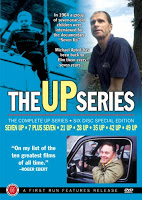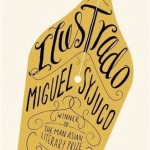 I don’t know the typical age at which a person begins to reflect back on their life and the choices they’ve made. I imagine it accompanies major life changes, like parenthood or hitting the big 4-0; or even something as predictable as the end of another year. I happen to be a new parent who’s pushing forty and, lately, I’ve found myself contemplating the bizarre twists and turns that have led me to where I am now. This sort of thinking can quickly lead to unhealthy brooding on “what might have been.” What I’ve found helpful, however, is reading about what others have made of their lives so far.
I don’t know the typical age at which a person begins to reflect back on their life and the choices they’ve made. I imagine it accompanies major life changes, like parenthood or hitting the big 4-0; or even something as predictable as the end of another year. I happen to be a new parent who’s pushing forty and, lately, I’ve found myself contemplating the bizarre twists and turns that have led me to where I am now. This sort of thinking can quickly lead to unhealthy brooding on “what might have been.” What I’ve found helpful, however, is reading about what others have made of their lives so far.
 While browsing the shelves in my local library one day, I accidentally came across a photographic study along the same lines. In The Oxford Project, photographer and Oxford, Iowa resident Peter Feldstein presents his portraits of the town’s 676 residents, originally taken as part of an art project back in 1984.
While browsing the shelves in my local library one day, I accidentally came across a photographic study along the same lines. In The Oxford Project, photographer and Oxford, Iowa resident Peter Feldstein presents his portraits of the town’s 676 residents, originally taken as part of an art project back in 1984.
In the Introduction, writer Stephen G. Bloom explains, “if you ask Peter why he wanted to photograph his neighbors in the rural town of Oxford, he’ll tell you it was a social experiment, a way to give equal, democratic billing to every single resident – rich or poor, young or old, respected or reviled.” In this 2008 publication, Feldstein reproduces as many portraits of the original group as he can, placing the updated pictures alongside each subject’s younger self. With the added “narration” – in the form of Bloom’s shrink wrapped interviews of 100 Oxford residents – the result is a strangely compelling view of ordinary folks living ordinary lives.
As Bloom describes,
More than I would have expected broke down in tears and confessed life stories seldom acknowledged. Many talked about relationships gone bad. Several revealed they were victims of domestic abuse or had weathered infidelities. A few exaggerated facts, boasting about events that I doubt ever occurred. A number of people confided great regrets and profound sorrows. Often their words came out slowly and methodically, other times they poured forth in jags and torrents. The language of not just a few was pure poetry.



